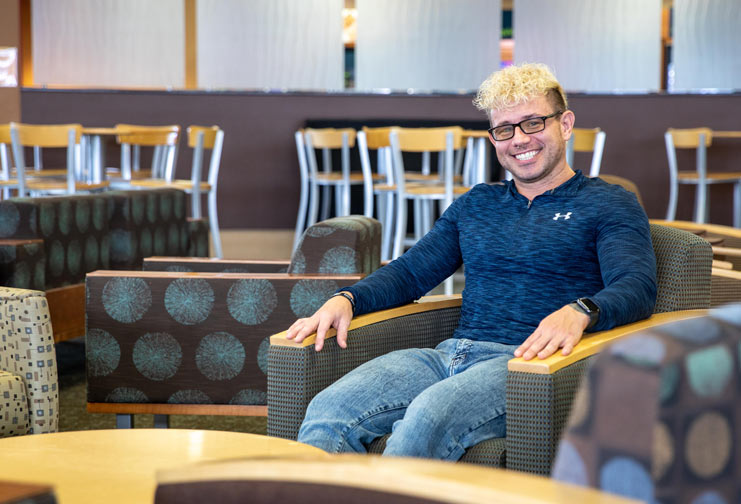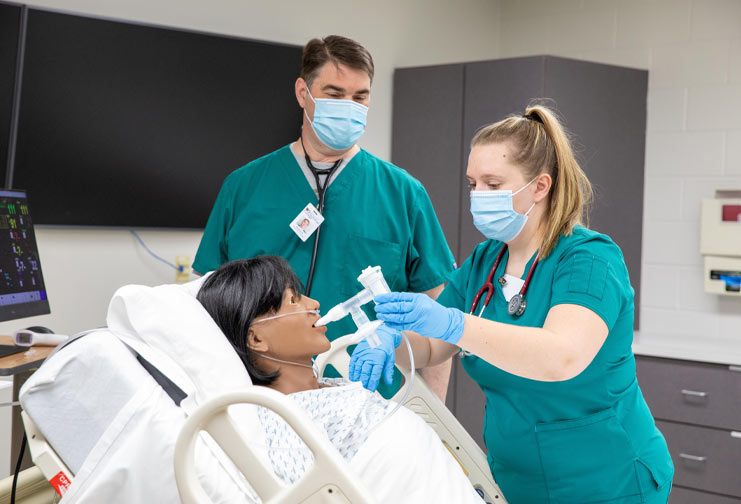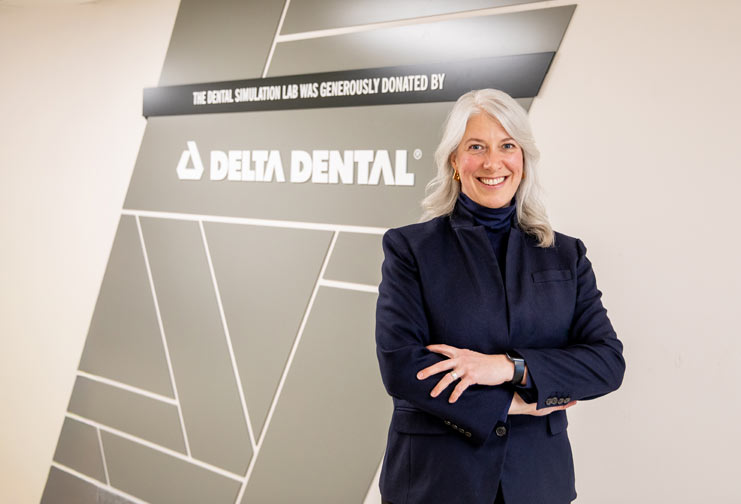Thursday, December 8, 2022
From solitary confinement to commencement
Felon, recovering addict to graduate from CVTC with honors

Adam Gilson, 38, graduates on Tuesday, Dec. 20, from Chippewa Valley Technical College, with a degree in Substance Use Disorder Counseling after two stints in prison. He’s nine years sober and ready to help others get on the right track.
When Adam Gilson was 14, he left his home in Tomah. He was taken in by a 30-year-old drug dealer. That’s when Gilson started selling drugs, too.
“They put an undercover cop in my high school. They did a whole sting operation when I was 16 because of their suspicions,” he said. “It was a yearlong investigation.”
Gilson sold drugs to the undercover officer and was arrested. That was in 2000.
Fast-forward 22 years through drug addiction and prison time, and Gilson is set to graduate from Chippewa Valley Technical College with an associate degree in Substance Use Disorder Counseling.
“I’ve been through a ton, but I still wouldn’t change any of it because it wouldn’t put me in the same position I’m in now, or the position that I’m going to be in the future,” he said. “My path would be different, and I’m very content and happy with what my path is right now.”
A traumatic past
Gilson, now 38, tells the story of his agonizing upbringing that led to drugs and prison. But he doesn’t blame others. He tells vignettes of his life as fact with little emotion. He owns it.
After his first arrest, the prosecutor offered Gilson a “lucrative deal” to divulge his drug source.
“My dad asked how dangerous the people are that I was working with. I said, ‘Pretty dangerous.’ He told me I better accept my consequences,” Gilson said. “So, I told them to take me to jail.”
Gilson was waived into adult court and at the age of nearly 18, he was convicted and sentenced to two years in prison. He received his GED in prison, and two years later, he was out.
But drugs lured him back to using. He stayed in active addiction for another nine years doing almost anything he could find.
“I used a lot of stimulants and designer drugs like ecstasy, cocaine and psychedelics,” Gilson said. “My real problem started when I turned 27. I tried meth. I literally tried it once, and I didn’t stop for two years. I used it every single day, all day.”
Then he got pulled over by law enforcement in Iowa. He was in possession of two 9mm handguns. And he had a felony under his belt from selling to the undercover officer 11 years prior. He was a felon in possession of firearms.
“They federally indicted me. I was tried in federal court, and I ended up getting a seven-and-a-half-year sentence,” he said. “I did six years.”
While in prison, Gilson applied for the Residential Drug Abuse Program administered by the United States Federal Bureau of Prisons offered to prisoners who qualify and voluntarily enroll. The nine-month program is cognitive-based, which Gilson said worked for him after other programs did not. However, he said being incarcerated could have also influenced his success in the program.
“I had done all the treatments prior to that and nothing helped me,” he said. “The program there was just spot-on for what I needed. I still use it to this day.”
Getting out of prison gave Gilson a new lease on life. Going to college was high on his priority list, and he began attending Western Technical College in La Crosse. He knew his past would become his future, but not like some might think.
Gilson traveled to Eau Claire to scope out CVTC – a college he heard had a great reputation for its Substance Use Disorder Counseling program. That’s when he connected with Troy Bruns, the program’s director and instructor.
Gilson was worried he wouldn’t be accepted because of his past. He sat outside of Bruns’ office for two hours, waiting to discuss the matter.
“I waited for him and I was like, ‘Hey, so I have a really extensive criminal history.’ I didn’t know if I would pass the background check,” Gilson said.
Bruns responded that landing the internship would be a struggle. But Gilson had a plan. If he did really well in the program, would Bruns vouch for him when internship opportunities rolled around?
Bruns agreed.
Throughout Gilson’s time at CVTC, he’s been on the President’s List and will graduate with honors.
Bruns is impressed by Gilson’s determination.
“He’s genuine, considerate and eager,” Bruns said. “He has shared about his past openly from the beginning.”
Bruns said he’s had a few students with criminal backgrounds, which could give them added understanding for what their clients are going through. But Bruns also said if the felony is recent, it can be difficult to find internship placement.
With Gilson’s good grades and instructor backing, he landed a coveted internship spot at L.E. Phillips-Libertas Treatment Center in Chippewa Falls – a service of Hospital Sisters Health System and one of the only treatment facilities of its kind in western Wisconsin.
As graduation approaches, Gilson has his next step planned. He accepted a counselor position at Exodus House in Hudson – a service of Lutheran Social Services. The facility offers gender-specific programming for men, substance abuse counseling and group treatment, evidence-based programming and individual counseling.
“Either they’re transitioning from prison back into the community, or they were on probation and struggling so they do the program in hopes of getting back on track and avoiding revocation and incarceration,” Gilson said. “It’s a great demographic for me because I can relate so well to their stories and struggles.”
Gilson said he’s had a lot of experience with the system not working for him and it makes him want to try harder to make sure what he’s doing is helping others.
“The tough thing is that in our field, there are going to be more failures than successes, and that’s just a fact," he said. “It’s just the idea of helping one person at a time – to get them to a place that is better than they were. A lot of times you don’t ever get that reassurance that you helped them because they don’t come back and tell you. But I know I’m making an impact. That’s the best I can do.”


